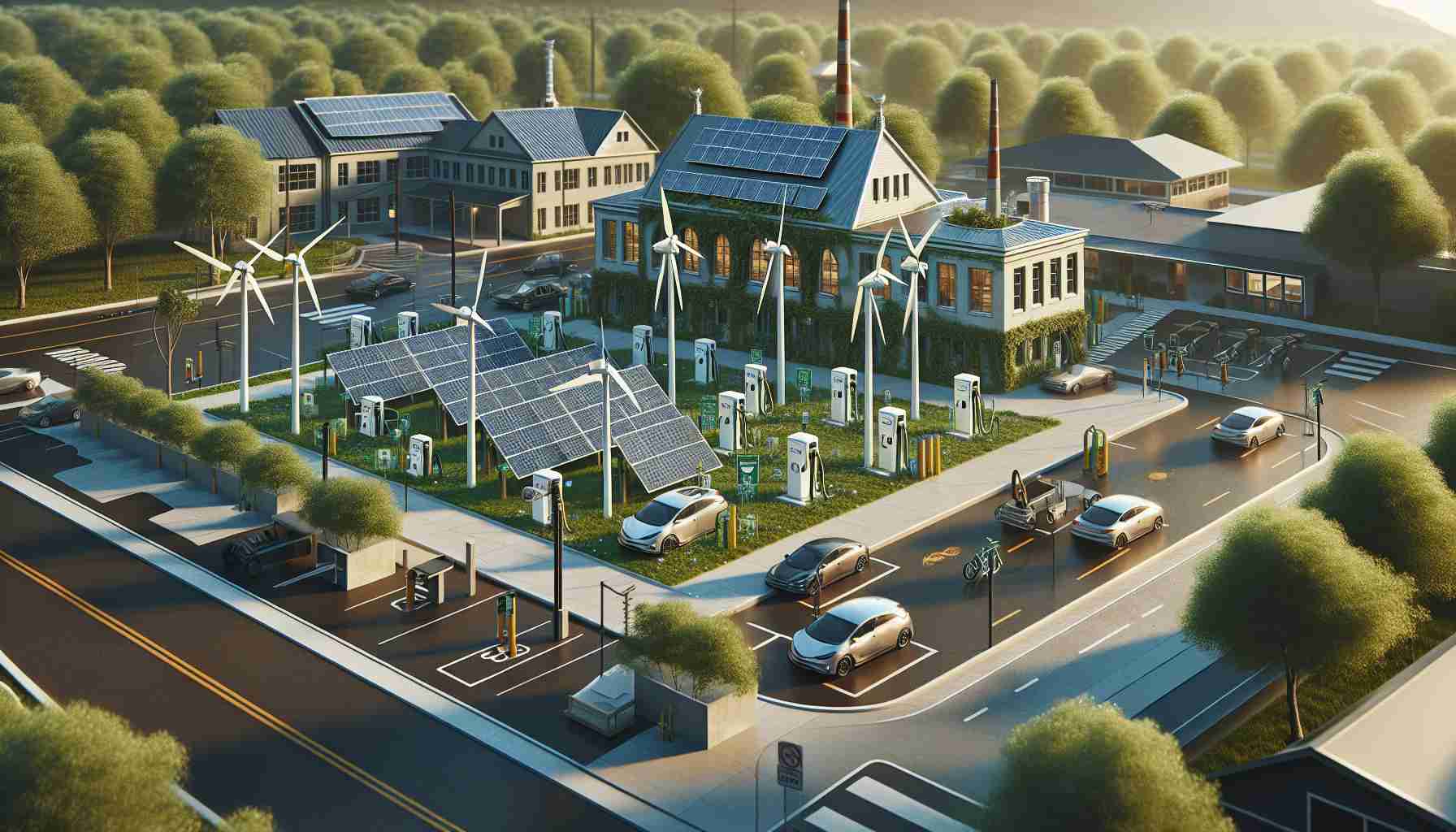In recent years, the electric vehicle (EV) market has soared, drawing attention from industry giants and consumers alike. Amidst this rapid evolution, Toyota has emerged as a key player, leveraging innovative technology to enhance electric mobility. Their recent breakthrough in battery technology is poised to significantly impact the EV industry, creating new opportunities for both manufacturers and consumers.
At the heart of Toyota’s advancement is a solid-state battery technology that promises to address some of the critical challenges currently facing lithium-ion batteries, which dominate the market. Traditional lithium-ion batteries are known for their limitations, including long charging times, limited range, and concerns regarding safety and longevity. In contrast, solid-state batteries utilize a solid electrolyte rather than a liquid one, leading to several advantages.
One of the most notable benefits of solid-state batteries is their higher energy density. This means that electric vehicles can be powered with a smaller and lighter battery while achieving longer driving ranges. Toyota claims that their solid-state batteries could offer up to two times the energy density of current lithium-ion batteries. This translates into fewer battery packs needed for extensive range, offering consumers greater convenience and a more enticing alternative to gasoline-powered vehicles.
Additionally, solid-state batteries can potentially be charged much faster than their lithium-ion counterparts. Toyota’s team has suggested that their new battery technology might allow for charging times comparable to refueling a gasoline car, which would alleviate one of the most significant concerns for EV users today. By making electric vehicles more accessible and convenient, Toyota aims to attract a broader audience to the EV market.
Safety is another area where Toyota’s innovative batteries excel. Conventional lithium-ion batteries can be prone to overheating and combustion, a concern that arises especially during high-stress situations such as accidents or significant charge cycles. The solid-state design minimizes these risks due to its robust structural integrity and eliminates flammable liquid electrolytes, thus enhancing the overall safety profile of the vehicle.
The implementation of these solid-state batteries is not just a theoretical concept; Toyota has announced plans to showcase their technology in their upcoming models. They target mass production of these batteries by the mid-2020s, signaling a commitment to integrating advanced battery solutions into their vehicles. This ambitious agenda underlines Toyota’s dedication to pushing the boundaries of what is possible in electric mobility.
As the global market shifts toward sustainability, automakers like Toyota are under pressure to develop greener technologies that can support a larger fleet of electric vehicles. Their breakthrough in battery technology aligns with this demand, allowing them to meet stricter emissions regulations and consumer preferences for environmentally friendly options.
In conclusion, Toyota’s advancements in solid-state battery technology represent a significant leap forward for the electric vehicle industry. With benefits such as increased energy density, faster charging times, and enhanced safety, these batteries could indeed revolutionize the way consumers think about electric vehicles. If successful, Toyota’s innovations may not only transform their product lineup but also set new standards for the entire automotive industry, paving the way for a cleaner and more efficient future of transportation.
Unlocking Electric Mobility: Tips, Life Hacks, and Facts for the EV Enthusiast
As the electric vehicle (EV) revolution gains momentum, consumers are eager to embrace this eco-friendly alternative to traditional gasoline cars. In light of recent advancements, especially with Toyota’s breakthrough in solid-state battery technology, here are some useful tips, life hacks, and intriguing facts to enhance your experience with electric vehicles.
1. Understand Range Anxiety
One of the most common concerns for potential EV owners is “range anxiety.” To mitigate this, assess your daily driving needs. Most consumers only need a battery range of around 200 miles for daily errands. Familiarizing yourself with local charging stations using apps such as PlugShare or ChargePoint can alleviate worries about running out of charge.
2. Make Use of Regenerative Braking
Enhance your EV’s range by utilizing regenerative braking. This technology captures energy that would ordinarily be lost during braking and redirects it back to the battery. Not only does this extend your vehicle’s range, but it also improves efficiency, especially in stop-and-go traffic conditions.
3. Charge Smart
Take advantage of off-peak electricity rates by charging your EV during night hours or when power demand is low. This strategy saves you money and helps balance grid load, contributing to a more sustainable energy ecosystem. Additionally, consider investing in a Level 2 home charging station for faster charging times.
4. Stay Updated on Charging Stations
Different EV models have varying charging capabilities. Familiarize yourself with the types of charging stations available and ensure compatibility with your vehicle. Utilize resources such as PlugShare or ChargeHub to find nearby stations and track the latest developments in EV infrastructure.
5. Optimize Battery Health
To maintain your battery’s lifespan, avoid exposing it to extreme temperatures. Storing your EV in a garage or shaded area can reduce wear on the batteries. Also, try to keep your battery charge between 20% and 80% for regular use, as fluctuations can accelerate degradation.
6. Stay Informed About Developments
With Toyota and other automakers making strides in EV technology, staying informed about new advancements can help you make better decisions when purchasing or maintaining an electric car. Regularly visit reputable automotive news websites or subscribe to industry newsletters for updates.
Interesting Fact: The Evolution of EV Technology
Did you know that the first electric vehicle was built in the early 1800s? Despite a rough start and the dominance of gasoline cars in the 20th century, electric vehicles have seen a resurgence, driven by advancements such as solid-state batteries, which promise improvements in safety and efficiency.
7. Explore Government Incentives
Many countries and states offer incentives for EV buyers, ranging from tax credits to rebates and grants. Research your local government policies on electric vehicles to take advantage of these benefits, making your transition to electric mobility even more financially appealing.
8. Join an EV Community
Connecting with fellow EV enthusiasts can provide valuable insights and support. Look for local EV clubs or online forums where you can share experiences, get tips, and gain knowledge about the evolving landscape of electric vehicles.
In conclusion, adopting an electric vehicle offers numerous advantages, including environmental benefits and lower operating costs. By implementing these tips and staying informed, you can maximize your EV experience and contribute to a more sustainable future. To learn more about the shifting automotive landscape and the latest innovations, visit Toyota for updates on their exciting new technologies and upcoming models.






















